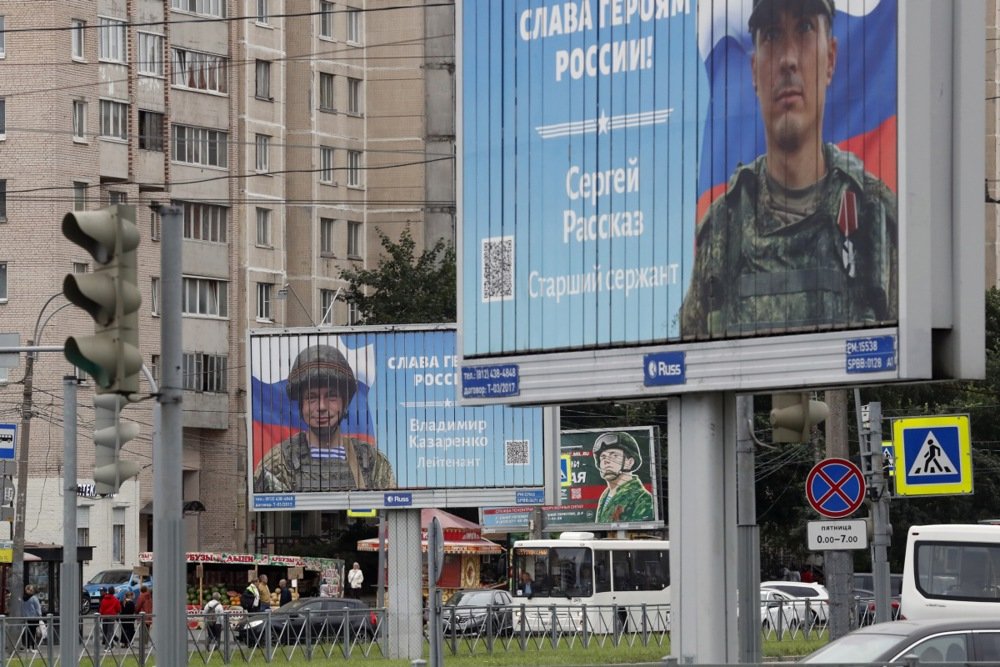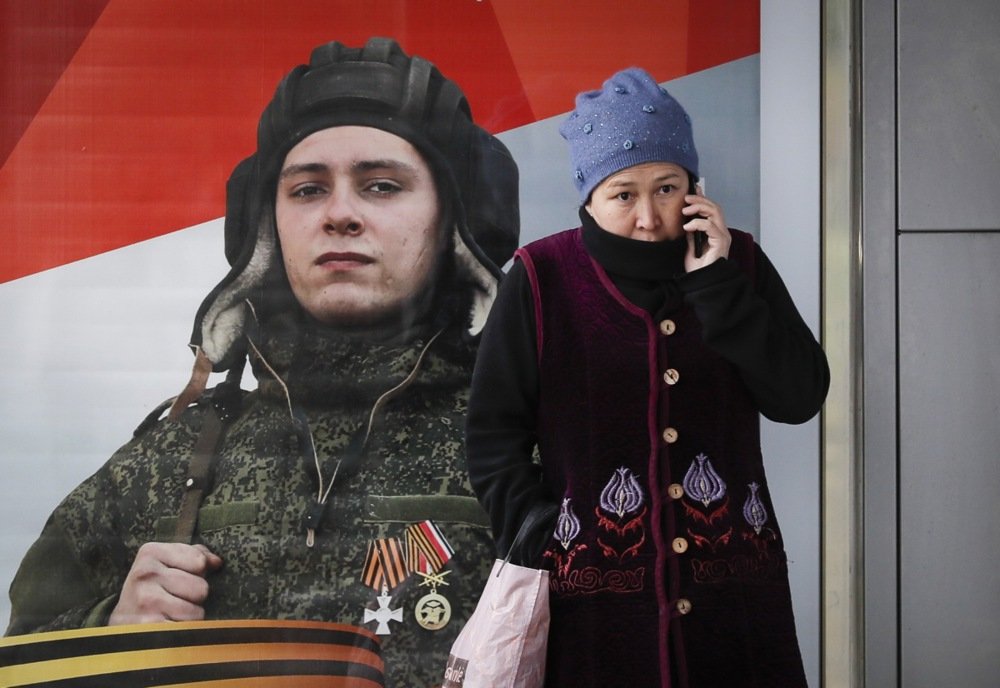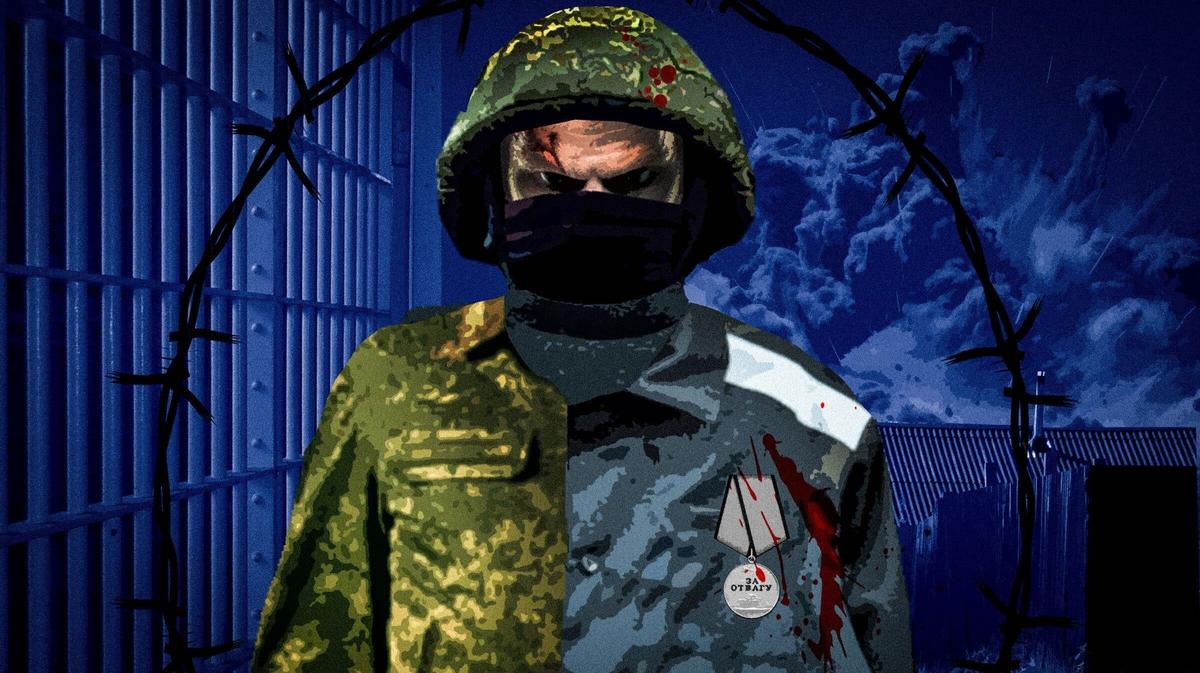In a bid to make military service more appealing, the Russian president has been pardoning violent criminals who have served on the front line in Ukraine, seemingly indifferent to the anxiety this causes for their victims or the danger posed to society by such indiscriminate extrajudicial leniency.
The brutal 2020 murder of Vera Pekhteleva in the Siberian region of Kemerovo made headlines in Russia mainly for the police’s failure to attend the scene despite multiple calls from neighbours. The 23-year old was beaten, raped, and then stabbed at least 56 times by her ex-boyfriend Vladislav Kanyus when she went to collect her belongings from his apartment.
Arrested shortly afterwards, Kanyus was sentenced to 17 years in prison and ordered to pay 4 million rubles (€41,500) to the victim’s family. However, just over a year later, Kanyus was at liberty, having been released by the prison authorities to fight for the Russian army in Ukraine and then discharged.
Pekhteleva’s mother Vera only learnt the news of Kanyus’s release when she came across photos of her daughter’s killer enjoying his freedom on Russian social media platform VK.
It later emerged that Kanyus had been in the Russian military since April this year. Earlier this month, Russian President Vladimir Purin pardoned Kanyus in recognition of his military service in Ukraine. Being a Ukraine war veteran also allows Kanyus to defer the court-ordered payment of damages to Pekhteleva’s family indefinitely.
Vera’s mother told independent Russian media outlet Bereg she couldn’t believe her daughter’s murderer was a free man again so soon.
“I trusted that [my country] would never betray me. We, Russian citizens, were told that those convicted of particularly grave crimes would not be taken to Ukraine. I believed that until I saw it wasn’t true myself.”
This June, Putin confirmed that he was signing decrees pardoning convicted criminals who subsequently fought in Ukraine. A few days after Putin made his announcement, Russia’s parliament adopted a law that allowed prisoners to sign up for the army directly from prison. The law, however, excludes those serving time for political crimes such as treason and to calls for extremist behaviour, a loophole designed to ensure that Kremlin critics aren’t offered the same shortcuts to freedom that murderers have.

Billboards depicting soldiers with the slogan ‘Glory to the Heroes of Russia’ stand in St. Petersburg, Russia, 30 August 2022. Photo: EPA-EFE/ANATOLY MALTSEV
“A pardon is a terrible thing,” lawyer Mari Davtyan told Russian media outlet Kavkaz.Realii in October. “A fully pardoned person is as clean before the law as someone who has never committed a crime. For example, a perpetrator of child sexual abuse can go to work in a school after being pardoned.”
Who comes back from the front
The majority of Russian men who have already returned home after serving in Ukraine are ex-convicts who earned early release or a presidential pardon “after repaying their debt”, as most civilians who were called up in last September’s mobilisation have been deployed indefinitely.
Some of these ex-convicts are violent criminals who have inevitably gone on to reoffend.
Last month, a man who had been given early release from an 11-year sentence for murder to allow him to fight in Ukraine returned home, where shortly afterwards he killed his sister by pouring petrol over her and setting her on fire. The police later described the two having had “a minor domestic dispute”.
Stories like this have been appearing in the Russian news for over a year now. Social workers worry that the incidents reported so far are just the tip of the iceberg and that soon their number will increase exponentially as more and more violent criminals “earn” their release, many of whom may now also be suffering from post traumatic stress disorder (PTSD).
“PTSD can drastically change a person’s perception of what’s right and what’s wrong,” says Dr Yelena Kharlamova, a professor at Riga Stradins University, “and that’s especially true of PTSD that’s the result of time spent in the military.”
Approximately 25-30% of people returning from the war zone suffer from PTSD, which is characterised by depression, but also by an increase in violent tendencies and an inability to hold one’s temper, Kharlamova says.
“Sometimes the disorder leads a person to change their beliefs completely, for instance, they might start thinking that murdering someone is okay and sometimes even necessary.”

Photo: EPA-EFE/YURI KOCHETKOV
In some cases, veterans with no history of domestic abuse can turn violent upon their return from the front.
Eduard Bitarov and Emma Karkusova were married for 15 years, had three children together, and had always been the image of a happy and loving family, Emma’s sister Larisa told Russian news outlet Krilya. Bitarov was a professional soldier who had served in Syria before being deployed to Ukraine.
“After Eduard left for Syria, his mother started calling him to say that Emma had been cheating, which was obviously not true,” Larisa explains. As their relationship became strained, Bitarov began to accuse his wife of cheating and would regularly start fights with her.
After filing for a divorce, Bitarov stabbed Karkusova with a knife at least 16 times, leaving her with her injuries to die alone over several hours.
While initially arrested for murder, Bitarov was later charged with committing a crime of passion, citing Karkusova’s alleged infidelity, no evidence of which was ever given. Incredibly, Bitarov avoided jail, his punishment amounting to no more than a year’s ban on serving in the military. The ruling took into account factors including his three dependent children, his lack of prior convictions, and, crucially, his status as a Ukraine war veteran.
Last November, Istories analysed over 80 convictions made by garrison military courts since the start of the war in Ukraine and found that in 84% of cases, being a veteran was seen by judges as grounds for a more lenient sentence.
‘The best way to avoid this kind of violence is to stop waging wars’
Despite the gruesome news stories, women’s charities in Russia say they’ve yet to see a spike in reported abuse by veterans, although as one NGO staff member speaking anonymously told Novaya Europe, that might be due to the relatively low number of Ukraine war veterans and ex-convicts who have returned from the front to date.
In order to properly rehabilitate a significant number of Ukraine veterans, the government would definitely need to get involved, says the NGO staffer: “It will not be possible to do it with the help of NGOs alone”. However, the government has not mentioned the possibility of a rehabilitation program for veterans.
Despite the low number of cases reported to the police, the overall trend in Russia for violent crime is now an upward one, says political scientist Yekaterina Schulmann, adding that court data indicates a 20% rise in crimes involving serious bodily harm in the first half of 2023.
“Compared to 2022, which was not the most favourable year, that’s a lot. We had been seeing such a positive pattern — since 2005 we’ve been seeing a decrease in the number of violent crimes.”
NGO representatives are certain that they’ll soon be seeing increased calls for help as more veterans return from the front.
“The country is going to need a huge number of mental health professionals to rehabilitate all these men”, says an NGO worker. “But the best way to avoid this kind of violence is to stop waging wars.”
Join us in rebuilding Novaya Gazeta Europe
The Russian government has banned independent media. We were forced to leave our country in order to keep doing our job, telling our readers about what is going on Russia, Ukraine and Europe.
We will continue fighting against warfare and dictatorship. We believe that freedom of speech is the most efficient antidote against tyranny. Support us financially to help us fight for peace and freedom.
By clicking the Support button, you agree to the processing of your personal data.
To cancel a regular donation, please write to [email protected]

